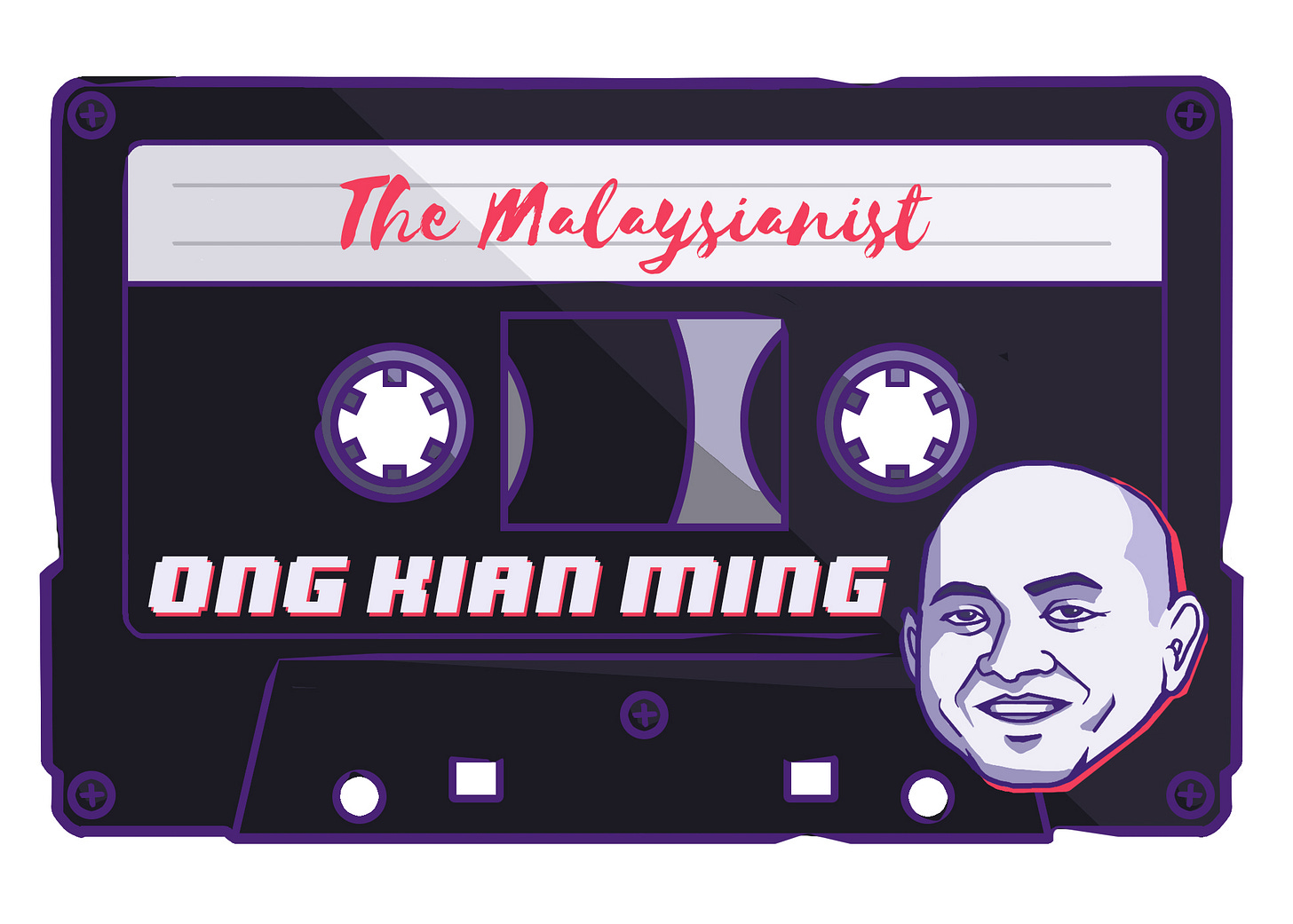DAP, Umno, and strategic silence
Q&A with former Bangi MP Ong Kian Ming.
You’re reading a ✨ subscriber-only version ✨ of The Malaysianist, a newsletter at the intersection of business and politics by journalist Emmanuel Samarathisa.
I run annual and group subscriptions. There’s also an atas tier called Founding Member where you get all the perks of an annual subscription but with additional stuff such as an annual report and insights into how this little corner of the internet fared throughout the year.
Group subscriptions are also available if you’re thinking of bulk purchases for your company or organisation.
And in case you missed Sunday’s newsletter 👇🏽
Let’s talk about the cooperation between Umno and DAP in Prime Minister Anwar Ibrahim’s government. It seemed like yesterday that Umno president Ahmad Zahid Hamidi chanted, “No Anwar! No DAP!” He is singing a different tune these days – that of a deputy prime minister.
Despite commanding the largest number of seats in their respective coalitions, Umno and DAP make for strange bedfellows. Being part of Anwar’s government means that the DAP has collaborated with every major Malay party in the country in its bid to either obtain or hold on to power.
The earliest taste over the palatability of a DAP-Umno combo was the 2023 state elections, involving Selangor, Penang, Kelantan, Negri Sembilan and Terengganu.
And the DAP’s performance in these elections with Umno as its wingman is the subject of former Bangi MP Ong Kian Ming’s paper recently published by Singapore-based think tank ISEAS-Yusof Ishak Institute.
Ong – a DAP man himself who’s busy with academia these days due to a break from politics – crunched polling stream data and found a number of trends.
Here are some key finding in his Scrutinising the DAP’s successes in the 2023 Malaysia state elections commentary:
DAP gained an average 5% increase in the level of support from 2022 to 2023, with an 8% increase in Malay support and a 2% increase in Chinese support.
DAP would probably still have won at least 41 of state seats without transferring Barisan Nasional (BN)/Umno votes, but working with Umno allowed the DAP to win by comfortable margins especially in marginal seats for the party.
The increase in support for the DAP was highest in Negri Sembilan, at 6.7%, followed by Selangor at 5.2%, Penang at 4.3% and finally Kedah at 1.4%.
DAP generally gained the largest transfer of Malay votes from older voters aligned to BN.
The average support for Perikatan Nasional (PN) in DAP-contested seats increased from 13.1% in the 2022 general election to 19.2% in the 2023 state elections. Calculations in the article showed that four out of five Malay voters who previously supported BN in these seats voted for PN in the state elections.
DAP’s stranglehold in seats the party contested in may become weaker, due to demographic changes, and if turnout and support for PH and DAP should drop among non-Malay voters.
I followed up with Ong to get his thoughts on some of the findings in his paper, largely because DAP-Umno relations will continue to be scrutinised and criticised as long as Anwar’s government holds together.
Our interview, edited for brevity, below:


